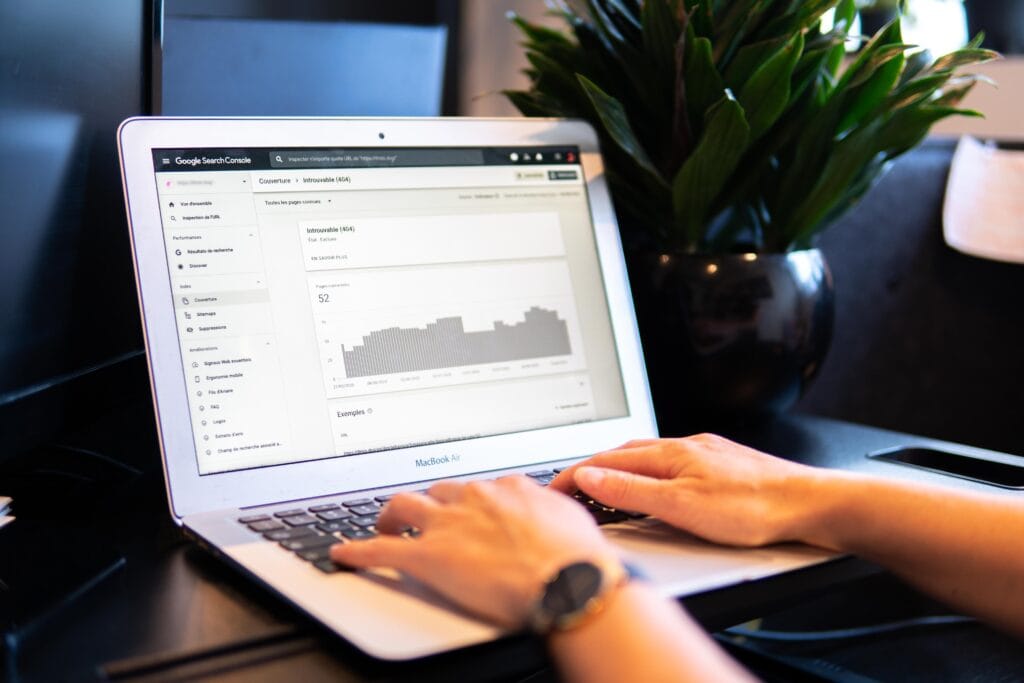As digital marketing evolves, businesses face a pivotal strategic dilemma: PPC or SEO. Pay-per-click (PPC) advertising and Search Engine Optimization (SEO) are two marketing strategies that help brands enhance visibility, attract traffic, and drive conversions. Understanding the differences between these strategies allows businesses to choose the best plan for their needs and goals.
Understanding PPC
PPC stands for pay-per-click and is a digital marketing model where advertisers pay a fee each time a user clicks on their ad. This strategy allows businesses to place bids on specific keywords, placing their ads at the top or bottom of the search results when users search those key phrases.
The basis of PPC is a solid foundation in keyword research. Advertisers and businesses must select words or phrases that may be searched by their target audience in relevance to their products or services. For example, some important keywords for a taco food truck may include “Mexican food truck,” “tacos near me,” and “taco catering.”
Once advertisers have identified their chosen keywords, they can bid on them using the Google Ads platform. During bidding, advertisers specify the maximum amount they are willing to pay per click. Recently, Google has introduced automated bidding, which optimizes bids for relevance. Google reports that 80% of advertisers using PPC strategies also use automated bidding. PPC costs can range anywhere from a few cents to several dollars, depending on the popularity of a phrase. These auctions determine which ads will appear at the top of the search engine results page (SERP) for that particular keyphrase. High placement is determined by a combination of relevance and high bids, so the highest bidder may not receive the top spot if another bidder has a more relevant product or brand.
PPC advertising offers numerous benefits to businesses. This strategy delivers almost instantaneous visibility and increased traffic. Studies show that approximately 65% of people click on sponsored Google Ads when looking to make a purchase. This strategy also allows advertisers to allocate funds strategically, targeting the most relevant audience with their advertising. PPC also has a robust set of analytics tools, enabling advertisers to continually update their strategy based on real-time data.
Drawbacks of PPC
Though PPC has many benefits, it also has several drawbacks. Though it delivers fast results, costs can quickly increase, particularly for competitive keywords. Additionally, without a large budget, PPC will quickly exhaust marketing funds. Finally, PPC does not impact a website’s organic search rankings. Once the money stops going towards a PPC campaign, visibility diminishes.
PPC is a powerful advertising strategy that can instantly boost online visibility. However, caution should be taken by businesses with lower advertising budgets or goals of increasing long-term visibility.
Understanding SEO
Search Engine Optimization (SEO) is a more holistic approach to digital marketing. It focuses on a website’s visibility in organic (non-paid) search. Unlike PPC. SEO seeks to enhance a website’s features, structure, and content to attract organic traffic over time. Google uses a variety of ranking factors, including meta tags, quality backlinks, site speed, and user experience, to determine organic search rankings.
Similar to PPC, SEO also requires a foundation in solid keyword research. However, instead of paying to advertise on searches with these keywords, advertisers strategically use them throughout their websites to attract potential visitors. On-page optimization is another essential SEO principle. Businesses can create web pages with relevant, high-quality content that meets the needs and expectations of searchers and their target audience. Off-page optimization refers to building a network of high-quality backlinks from other reputable websites. This principle seeks to enhance a website’s authority and trustworthiness, essential for Google’s quality rating guidelines. Other factors like site speed, mobile responsiveness, easy navigation, and more contribute to a site’s ranking.
Unlike PPC, SEO provides long-term sustainability for a website. Once a website has gained a reputation and ranks well, it tends to continue to do so. Additionally, this strategy may be more cost-effective as the cost per visitor decreases as organic traffic grows. Finally, SEO seeks to attract organic visitors, meaning that visitors are likely genuinely interested in the content or products on the site. This can lead to higher-quality conversions and brand loyalty. However, SEO is a gradual process that can take months before any significant changes are noticed. Additionally, Google regularly updates its ranking factors, which can negatively impact some sites’ ranking and visibility.
Ultimately, implementing SEO can increase the long-term visibility of a site, leading to more conversions and leads.
Choosing the Right Strategy
Many marketers and business owners face a difficult decision when choosing SEO, PPC, or a combination of both. This choice depends on various factors, including a business’s long-term goals, budget, and desired timeline. For example, PPC may be well-suited for a company that wants immediate results, like driving traffic to a new site, and has a large budget. SEO may be more suited for businesses with long-term digital objectives, like building brand authority. Most companies likely have a combination of short and long-term goals, making a combination of PPC and SEO the right strategy. Integrating these digital marketing strategies helps businesses achieve immediate visibility in the SERPs while continuing to establish organic authority in the background.
Interested in Online Marketing?
SEO and PPC are powerful digital marketing strategies that can help businesses achieve their online visibility goals. Effect Web Agency can help you determine the right mix of SEO and PPC for your business’s visibility, traffic, and conversion goals. Reach out to Effect Web Agency and take your online marketing to the next level!




